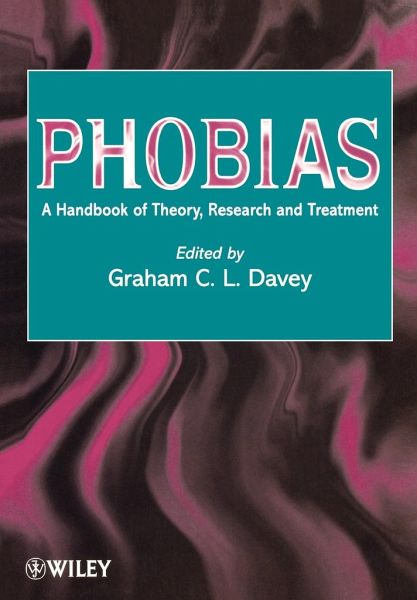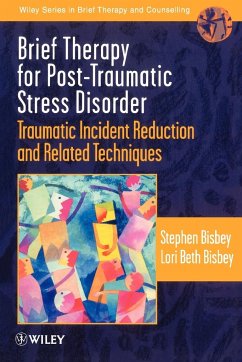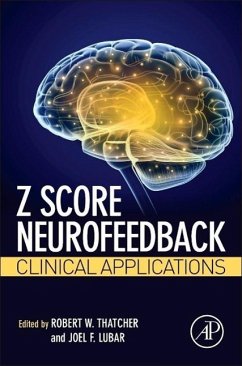
Phobias
A Handbook of Theory, Research and Treatment
Mitwirkender: Davey, Graham C. L.
Versandkostenfrei!
Versandfertig in über 4 Wochen
109,99 €
inkl. MwSt.

PAYBACK Punkte
55 °P sammeln!
In diesem handlichen Nachschlagewerk sind die wichtigsten Erkenntnisse über Phobien zusammengetragen worden. Es ist ein ideales Handbuch für das schnelle Auffinden gewünschter Informationen und ein maßgeblicher Leitfaden zur aktuellen Fachliteratur. Es bietet einen systematischen, integrierten und aktuellen Überblick über die am häufigsten auftretenden Phobien, ihre Behandlung und theoretische Fragen im Zusammenhang mit der Ätiologie. Diskutiert wird u.a. die Schlüsselrolle kognitiver Faktoren in der Psychopathologie, die verantwortlich sind für Entstehung und Fortdauer von Angstzuständen. This book describes the symptoms, prevalence rates, individual case histories and etiology of phobias. It explores treatment and covers current methodologies, outcome efficacy, and comparisons between different therapeutic techniques.
Phobias A Handbook of Theory, Research and Treatment Edited by Graham C. L. Davey University of Sussex, UK
A complete summary of current knowledge about phobias, for the academic and clinician
First comprehensive handbook on the topic for 10 years
The latest research and findings presented in a single source
Contributions from eminent international clinicians and researchers
Psychological treatments available for specific phobias have been refined considerably in recent years. This extensive handbook acknowledges these treatments and includes the description and nature of prevalent phobias, details of symptoms, prevalence rates, individual case histories, and a brief review of our knowledge of the aetiology of phobias. Key knowledge about phobias is brought together in this one critical and accessible handbook, which saves the busy clinician time and provides an authoritative guide to the literature. It is systematically compiled to act as a working tool providing an integrated, contemporary account of prevalent specific phobias, their treatment and theoretical issues concerning aetiology. The Handbook also reflects the important role of cognitive factors in psychopathology which generate and maintain phobic disorders, a process that is now recognized as important in their understanding and treatment. "The joy of Davey s book is that it skillfully blends the historical conditioning theory perspective with current cognitive-behaviour theories . the result is a complete summary of current knowledge about phobias, for clinicians and researchers . an invaluable handbook and an essential summary of the status of theory, research and treatment in phobias. It is highly recommended to researchers and to both novice and experienced clinicians." Roz Shafran, Behaviour Research and Therapy
A complete summary of current knowledge about phobias, for the academic and clinician
First comprehensive handbook on the topic for 10 years
The latest research and findings presented in a single source
Contributions from eminent international clinicians and researchers
Psychological treatments available for specific phobias have been refined considerably in recent years. This extensive handbook acknowledges these treatments and includes the description and nature of prevalent phobias, details of symptoms, prevalence rates, individual case histories, and a brief review of our knowledge of the aetiology of phobias. Key knowledge about phobias is brought together in this one critical and accessible handbook, which saves the busy clinician time and provides an authoritative guide to the literature. It is systematically compiled to act as a working tool providing an integrated, contemporary account of prevalent specific phobias, their treatment and theoretical issues concerning aetiology. The Handbook also reflects the important role of cognitive factors in psychopathology which generate and maintain phobic disorders, a process that is now recognized as important in their understanding and treatment. "The joy of Davey s book is that it skillfully blends the historical conditioning theory perspective with current cognitive-behaviour theories . the result is a complete summary of current knowledge about phobias, for clinicians and researchers . an invaluable handbook and an essential summary of the status of theory, research and treatment in phobias. It is highly recommended to researchers and to both novice and experienced clinicians." Roz Shafran, Behaviour Research and Therapy












